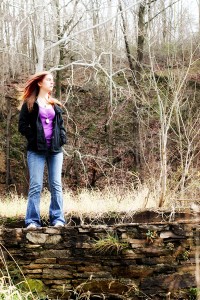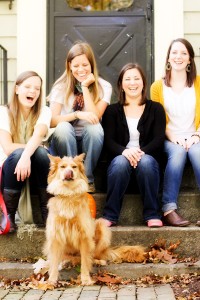This is the last of a four-part series. Part I, Part II, Part III.
I’ve written several posts over the past weeks: the first dealt with my education in business and photography through self-employment; the second, some of my thoughts on homelessness. Last week, I discussed what I learned about a Christian idea called “guarding your heart” and nontraditional housing compared to my suburban upbringing. This week, I’d love to tell you what I learned about the Gospel of Jesus Christ this summer.
What is the Gospel not?Some of you who may read this have had bad experiences with the church.
So have I: twice have I watched a church disintegrate around me in sad fashion.
I’m not talking about the church here, but Jesus Christ.
I ask you, as I have tried to do, not to judge Him by people who (momentarily or consistently) represent Him poorly.
The Gospel is not guilt and shame.
It is not the word of God speaking against you and constantly reminding you of your faults.
The Gospel does not give permission for followers of Jesus Christ to heap guilt on others.
The Gospel is not a set of rules.
The Christian does not earn God’s favor through his or her morality.
A Christian is not breathlessly running around, doing everything possible to get into heaven by his or her own merit.
The Gospel is not an intellectual idea.
To believe in Jesus is not simply to acknowledge His existence, but to put
complete trust in Him.
What is the Gospel?In a word,
freedom.The truth is, we know this world is a shambles.
We read the news of civil unrest and earthquakes, of flooding and family strife, of senseless murder and senseless gossip.
All sorts of evils, large and small, surround us.
Yet there is so much good, so many things which cause us to cry inside,
this is so right! This world was created by a perfect God to be good, created so that we – His creation – could live in free relationship with Him.
Yet, for love to be real, it must be chosen.
When Satan deceived Adam and Eve into eating the fruit of the tree from which they were forbidden to eat, the perfect relationship between God and man was severed.
Mankind, by eating of this fruit, was put under the curse of sin and death.
Man and Woman had chosen to disobey God – to not trust in His love for them and therefore not love Him fully.
Sin – rebellion against God – entered the world.
Mankind exchanged a perfect, loving master for a cruel, deceptive master and became enslaved to sin.
Even a highly moral person (by whatever standard you choose) will tell you in moments of honesty that they do not live up to that standard.
Time and again, I fail the moral standards I set for myself.
I am a sinner and I cannot change that of my own accord.
Can a slave free himself?
Can a dead woman breath life back into her body?
So where does that leave us?
O wretched people that we are, who will save us from death?
About a year ago, I shared the Gospel at our InterVarsity fall retreat, as part of our series of talks on love that weekend.
I said that our sin is abhorrent to God and that we fall under his sentence of death.
We have rebelled, denied God, stated that we don’t accept His lordship.
Yet, He wants us back, and so sent His son Jesus to die in our place.
He still metes out justice and also pours out his love by taking our place on the chopping block.
Sin is punished and dealt with and we, if we choose, can reenter a relationship with him (typically understood as “going to heaven when we die”).
This is incomplete.
This is cheap grace.
The only problem solved here is that the criminal is let off the hook.
God’s wrath over his or her disobedience is shunted over to Christ on the cross, and the criminal goes free, happy that Jesus died for him, yet the
reason this person is a criminal remains.
I, in sharing the gospel that night, in no way told the whole story.
This summer, in reading a
blog post by my friend Bryan, listening to the
sermon to which he linked, and rereading the four biographies of Jesus contained in the Bible, I realized that I had inadequately communicated the Gospel.
God is not looking to simply find a way to keep us from the death we deserve due to sin.
He wants to reconcile us to Himself.
He wants to
free us, here and now, from the slavery of sin.
He wants to
heal us, here and now of the disease of sin.
He wants to
forgive us, here and now, that we can come before Him washed clean.
He wants to make us
completely new. In John, Chapter 5, Jesus says that he does only what he sees the Father doing.
Jesus, as God the Son, and God the Father have the very same purpose in restoring a loving relationship between God and man.
They have the same purpose in freeing, healing, and forgiving mankind.
Christ, on the cross, does not simply absorb the Father’s wrath against sin, but also bears the curse of sin so that we do not need to.
He breaks the power of the curse over us that we may be free, no longer slaves.
The Gospel is God’s great work of grace to make us
free.
Freedom from sin and death.
Freedom to live as His children.
People sometimes think Christianity is about being a good person so that you can go to heaven when you die, and Jesus fits in there somehow.
I passionately disagree.
Christianity is living a life knowing you are loved by God Himself (what a mystery!), that He has gone to tremendous lengths to
free you from sin and death and be a part of what He is doing on this earth in restoring all things.
How to write this? There is so much more I want to say!
If we were talking face to face, I would probably be jumping and speaking way too fast, trying to convey the wondrousness of this love of God, that He would come to earth and die a terrible death to rescue us from our sin, our rebellion, our soul disease.
This summer, I came to see God’s grace in a fuller, greater way.
I came to see that His love and sacrifice is so much more incredible than I had previously understood.
Jesus says “I am the Way, the Truth, and the Life.”
Jesus says, “If you abide in my word, you are truly my disciples, and you will know the truth, and the truth will set you free.”
Will you trust Him?
Will you stake your life on His promise of freedom?
Choose Him and know His grace.
Run to Him and know His love!
Walk with Christ and know His freedom. Leave your life of sin, allow God to change your heart, and find yourself forgiven. Trust in Christ.
In this, the love of God was manifested toward us, that God has sent His only begotten Son into the world, that we might live through Him. [1 John 4:9]
 I had the pleasure of taking senior portraits for Rebecca over Thanksgiving break. Several days of rain gave way to a windy, somewhat overcast day as the storm system blew out to sea.
I had the pleasure of taking senior portraits for Rebecca over Thanksgiving break. Several days of rain gave way to a windy, somewhat overcast day as the storm system blew out to sea.






